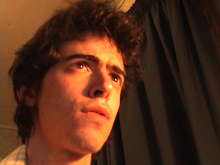Terrence Malick's cosmic elegy is not just larger-than-life: it bypasses life. The movie confirms what theologists deny but we may suspect: that there is an unmistakable triteness to eternity. Upon its release, it became one of those films lambasted and worshipped for all the wrong reasons. There is nothing confusing about it (there isn't much to get) but, sadly, the pictorial qualities for which it was so revered are nothing memorable either. The brilliant cinematographer, Emmanuel Lubezki, becomes the pimp of life and beauty, an archangel of light tracing the steps of Jessica Chastain's suburban Virgin Mary. The succession of "exquisite" and "poetic" images, so tenderly "in the moment" that it becomes painfully evident how staged they are, have the tendency to drown themselves out at the same moment they are projected. Everything is as perfectly pure, clean and picturesque as a screensaver. Nothing feels lived-in; nothing is tangible. How does Malick expect us to embrace the eternal if we're not even allowed to mourn the transient? His airiness is his worst enemy: it destroys juxtapositions that are essential to the work. The film seems the trance-like state of a Buddhist who fell in love with Christianity and deprived it of all the barbarism and devilry that made it interesting to begin with, until only the hallowed core remained: the banal promise of saintliness. It can't quite shake off the odor of New Age "love and harmony", either, and there are bizarre prehistoric reveries that don't really work. And despite all the blatant aestheticism, there is not one moment of real beauty in it. This film has the dubious effect of making one long for some old-fashioned materialism.
Thursday, February 5, 2015
The Tree of Life (2011, Malick)
Labels:
2011,
brad pitt,
emmanuel lubezki,
jessica chastain,
terrence malick
Subscribe to:
Post Comments (Atom)

No comments:
Post a Comment